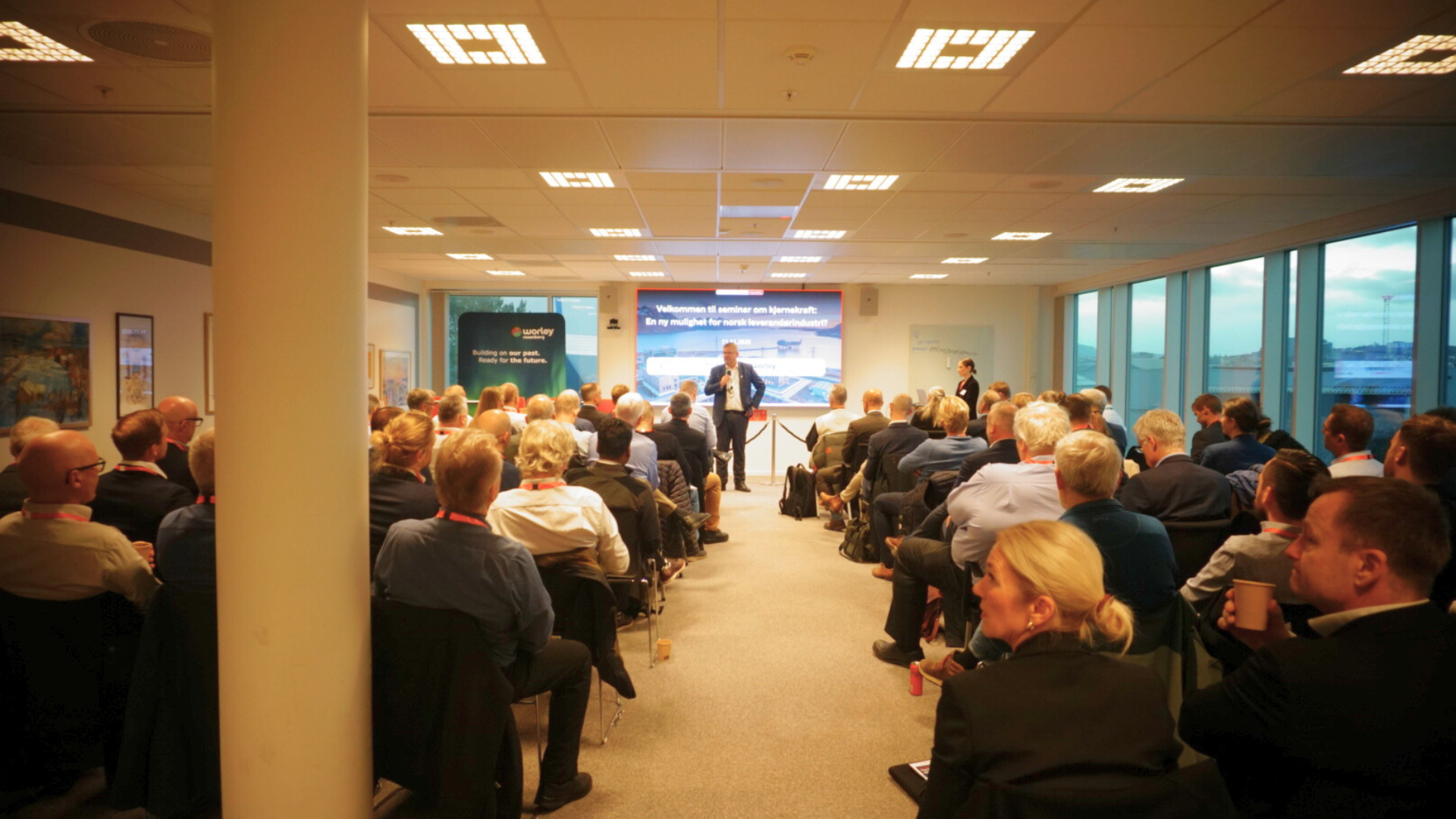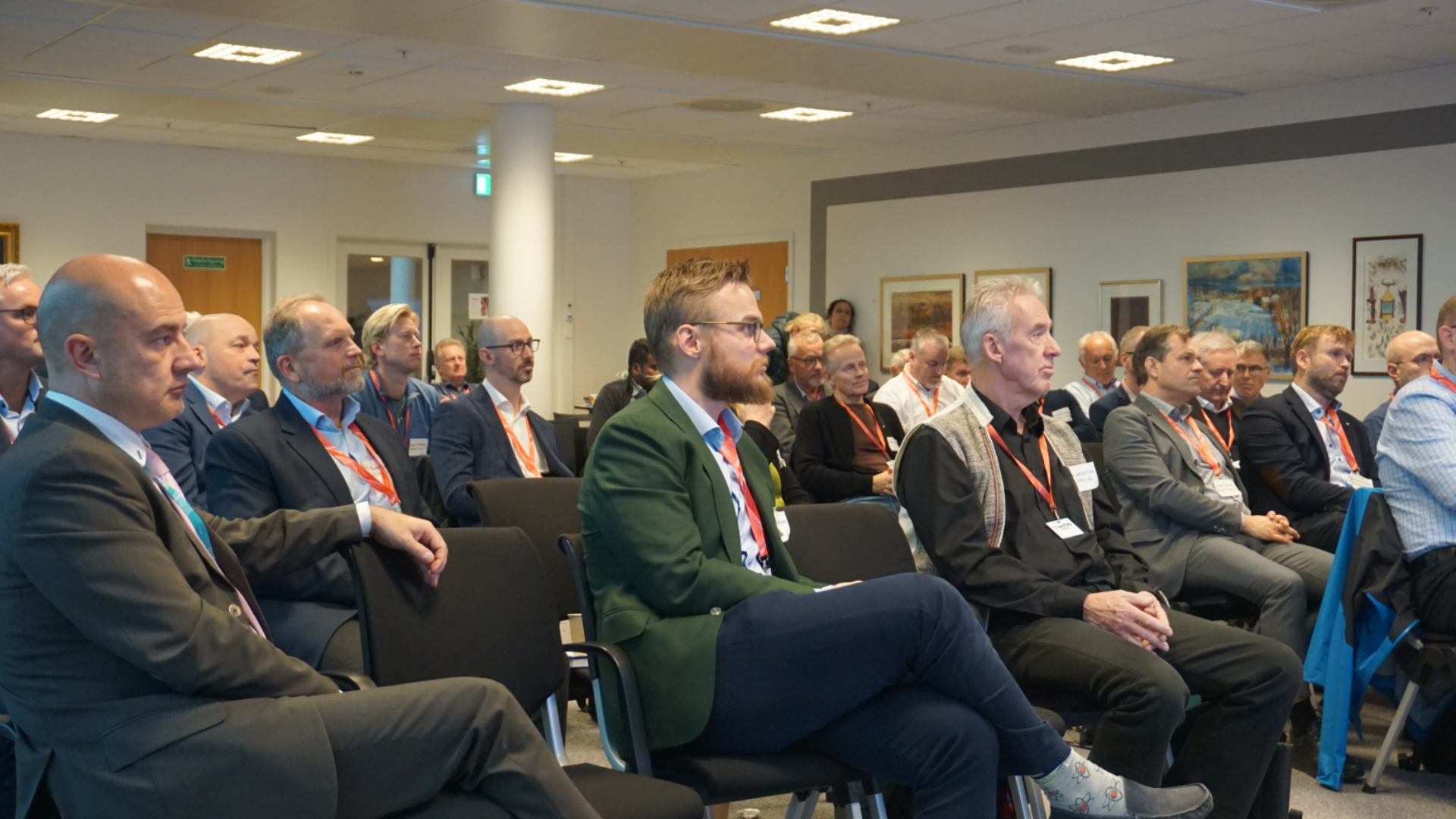Invitasjon til Energi2050 arbeidsmøter
Gi innspill til en ny, helhetlig FoUI-strategi for hele energiområdet i Norge.
The offshore industry sees big potential to transfer its expertise and tech to accelerate nuclear energy growth.


The offshore supplier industry sees huge potential for knowledge and technology transfer to support the rapid expansion of nuclear energy needed to fast-track the energy transition.
This article is written by Jon Hellevang, R&D Manager GCE Ocean Technology.
Great turnout at Worley Rosenberg to discuss the possibilities for the Norwegian offshore industry in the expanding trillion-dollar market. The backdrop is clear: we need more power and less CO₂ emissions. The numbers are mind-blowing, but where do we start?

The nuclear power plant is divided into a reactor island and a power/energy island. The oil and gas supplier industry is very well positioned to provide solutions for the power/energy island. This consists of conventional technologies, where the industry has significant related experience and competence.
The main difference is documentation requirements. The message is clear - if you believe oil and gas has challenges with requirements and documentation, nuclear is even more extensive. However, many of the design principles are similar and documentation is manageable.
Several speakers estimate that as much as 90% of a nuclear power plant is based on conventional technology, where Norwegian companies are well positioned to deliver products and services.

Worley, the host of the seminar, as well as other global companies located in Norway, have extensive experience with nuclear power to build upon.
— We are willing to invest in nuclear power in Norway, was the clear message from Worley.
Other companies have extensive experience from hydropower, industry, and offshore, which translates very well. Running an oil and gas platform offshore is perceived to be more complex than running a nuclear power plant on land, so Norway has a great starting point. However, you need to get used to the nuclear safety culture, its quality control, and documentation.
Nuclear power is political. So far, the nuclear initiatives in Norway have been driven bottom-up. Public opinion is currently very positive, but we have seen from onshore wind how fast this can turn around.
A key challenge is high cost driven by different requirements between countries. There have been good examples of project execution, among others in Japan, while there have been some recent examples of how not to do it in Europe. The project execution experience needs to be rebuilt in Europe.
Norway has the possibility to start on a blank page with nuclear power, but it is important to join forces with Nordic countries and Europe and not start creating our own rules and regulations.

Nuclear power is reliable, but cost is a challenge. The willingness to pay a premium for reliability is there in some industries and countries like AI in the US, but this is not the case in Norway at the moment. Norway still has a net export of electricity and the sense of urgency in building more power is limited.
Small Modular Reactors are seen as an important path to reduce cost for nuclear power. Standardization, standardization, and standardization is seen as key for reducing cost.
However, standardization might pose a challenge for the Norwegian offshore industry, similar to offshore wind. We are great at building a few specialized units but struggle to compete on cost with large-volume production.
A home market is often seen as important in building an industry. The recommendation from several of the speakers is not to sit and wait but to take part in Nordic and European projects.
The governmental report on nuclear power is planned to be delivered in the spring. The speakers are unsure what to expect from this.

There are many possibilities for the offshore industry, but we also need to be aware of the prevailing “not in my backyard” attitude. And as mentioned in the panel: “Do not forget nuclear power is the mother of all torchlight processions.”
The seminar clearly shows an increased optimism for nuclear power. There is a need for more energy with lower emissions. The offshore industry has significant experience and knowledge to build from. Smart specialization and targeting the right opportunities will be important for success.

The seminar was hosted by Energy Transition Norway, Norsk Kjernekraft, Worley Rosenberg, and Arv Energy.